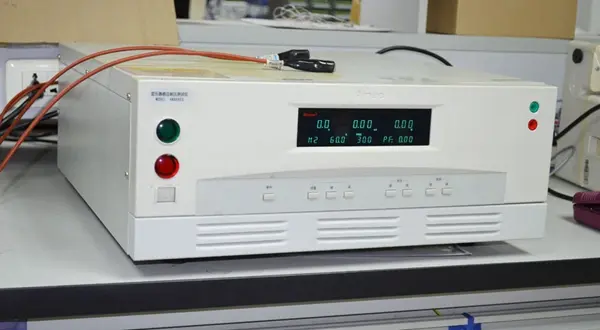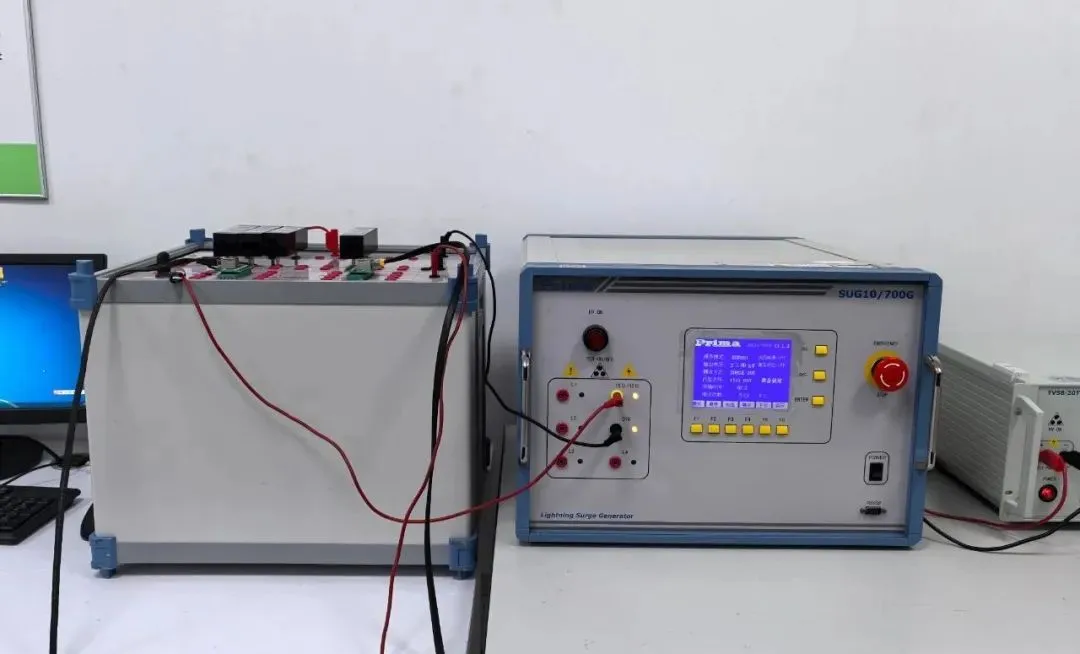
What is the IEC 62133 Test Report?
iec 62133 is a safety standard established by the International Electrotechnical Commission (IEC) for rechargeable cells and batteries containing alkaline or other non-acid electrolytes, used in portable electronic products. This includes both lithium-based and nickel-based batteries. The standard underwent a significant update and revision in 2017, resULting in the release of two parts: IEC 62133-1:2017 and iec 62133-2:2017.

IEC 62133-1:2017 and IEC 62133-2:2017
IEC 62133-1:2017 primarily focuses on nickel-based batteries, while IEC 62133-2:2017 is dedicated to testing lithium-based batteries. Both parts include tests for button cells. These updates encompass enhancements in battery pack assembly, mechanical testing (such as impact and vibration), and the inclusion of the reference document IEC TR62914.
IEC TR62914 Technical Report
IEC TR62914 is a technical report titled "Secondary cells and batteries containing alkaline or other non-acid electrolytes - Experimental procedure for the forced internal short-circuit test of IEC 62133:2012." This report provides the experimental procedures for performing the forced internal short-circuit test as specified in IEC 62133:2012. It includes details on test setup, dimensions, testing protocols, and requirements.
In the 2017 edition of IEC 62133-2, IEC TR62914 was added as a reference document, offering detailed guidance for battery manufacturers and testing laboratories on how to conduct specific tests, particularly the forced internal short-circuit test. This test is crucial for assessing battery safety under extreme conditions.
Key Tests in the IEC 62133 Standard
1. Overcharge Test: Evaluates the safety performance of the battery under overcharge conditions.
2. Overdischarge Test: Assesses the safety of the battery when discharged to its limit.
3. Short Circuit Test: Simulates the battery's response to a short circuit.
4. Thermal Shock Test: Evaluates the battery's safety and stability under extreme temperature changes.
5. Crush Test: Assesses the safety of the battery when subjected to mechanical crushing.
Short Circuit Protection Requirements for Lithium Batteries in IEC 62133
The IEC 62133 standard includes specific requirements for short circuit protection to ensure the safety of lithium batteries during short circuits. According to IEC 62133-2:2017, the short circuit test requirements are as follows:
1. Test Conditions: Fully charged batteries are placed in environments at 20°C ± 5°C or 55°C ± 5°C, and subjected to a short circuit with an internal resistance of less than 5 mΩ.
2. Test Duration: The battery must undergo the short circuit test for 24 hours or until the battery temperature drops by more than 20% from the peak temperature during the short circuit.
3. Test Objective: The goal is to evaluate the battery's safety performance during a short circuit, ensuring that it does not catch fire or explode.
These requirements aim to simulate extreme conditions the battery might encounter in real-world use, validating its safety performance.
Thermal Stability Testing Requirements for Lithium Batteries in IEC 62133
The IEC 62133 standard specifies several tests to ensure the thermal stability of lithium batteries:
1. Plastic Case Stress Test at High Temperatures: Batteries are placed at 70°C ± 2°C for over 7 hours and then returned to room temperature to simulate high-temperature stability.
2. Temperature Cycling Test: Batteries undergo cycles of 70°C ± 2°C for 4 hours, rapid cooling to 20°C ± 5°C for 2 hours, then cooling to -20°C ± 2°C for 4 hours, and returning to 20°C ± 5°C for 2 hours. This cycle is repeated four times, followed by a 7-day observation period for any explosions, fires, or leaks.
3. Thermal Abuse Test: Fully charged batteries are subjected to thermal abuse testing for 30 minutes (increased from the previous 10 minutes) to assess safety under overheating conditions.
4. Thermal Shock Test: Fully charged batteries are subjected to thermal shock testing to simulate stability under rapid temperature changes.
These tests are designed to ensure the safety of lithium batteries under high temperatures or temperature fluctuations, preventing thermal runaway incidents. By passing these rigorous thermal stability tests, the reliability and safety of the batteries are ensuRED.
Email:hello@jjrlab.com
Write your message here and send it to us
 Global Certification Guide for Lithium Batteries
Global Certification Guide for Lithium Batteries
 Compliance of Amazon 18650 Lithium Battery Product
Compliance of Amazon 18650 Lithium Battery Product
 What is CE Certification and EU Authorized Represe
What is CE Certification and EU Authorized Represe
 What Are the Lithium Battery Safety Tests?
What Are the Lithium Battery Safety Tests?
 What is the EN 61326-2-3 Standard?
What is the EN 61326-2-3 Standard?
 Why Do Smart Sockets Need IEC 60884 Certification?
Why Do Smart Sockets Need IEC 60884 Certification?
 Why Retest the Device if the 5G Module Already Has
Why Retest the Device if the 5G Module Already Has
 Overview of IEC 62087 Test Standard
Overview of IEC 62087 Test Standard
Leave us a message
24-hour online customer service at any time to respond, so that you worry!




